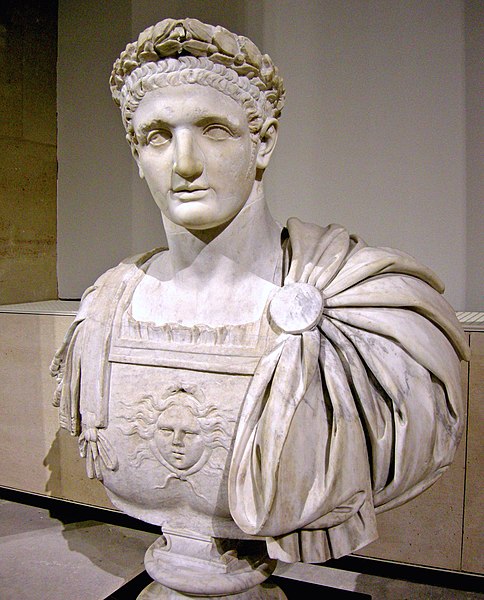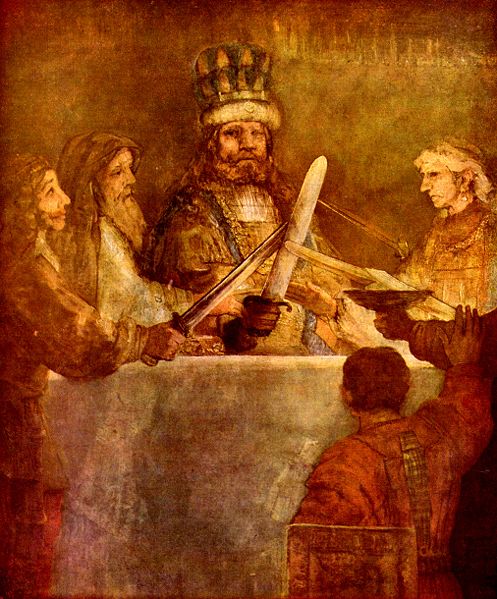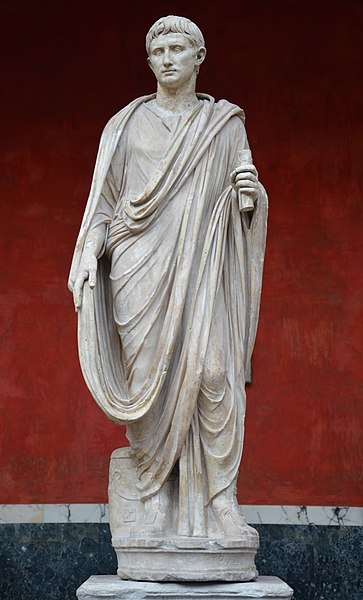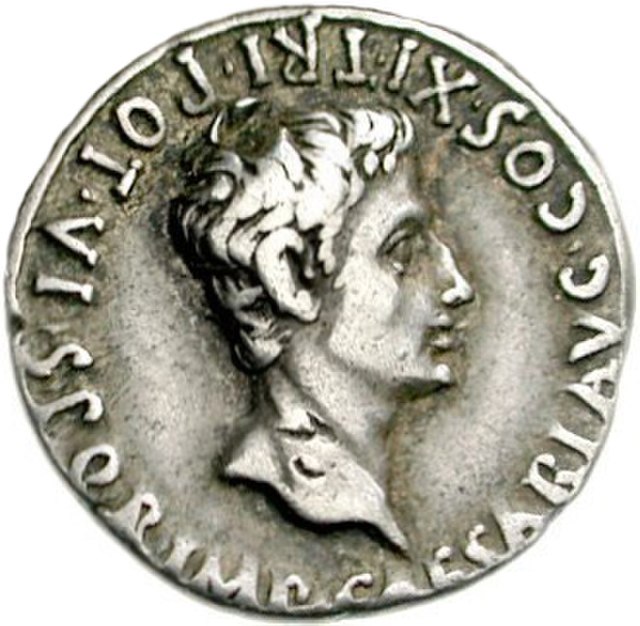Domitian was Roman emperor from 81 to 96. The son of Vespasian and the younger brother of Titus, his two predecessors on the throne, he was the last member of the Flavian dynasty. Described as "a ruthless but efficient autocrat", his authoritarian style of ruling put him at sharp odds with the Senate, whose powers he drastically curtailed.
Bust in the Louvre
A denarius of Domitian. Caption: CAES. DOMIT. AVG. GERM. P. M., TR. P. XIIII.
A sestertius of Domitian. Caption: IMP. CAES. DOMIT. AVG. GERM. CO[N]S. IV, CENS. PERP. P. / IOVI VICTORI.
The Conspiracy of Claudius Civilis (detail), by Rembrandt (1661). During the Batavian rebellion, Domitian eagerly sought the opportunity to attain military glory, but was denied command of a legion by superior officers.
The Roman emperor was the ruler and monarchical head of state of the Roman Empire, starting with the granting of the title augustus to Octavian in 27 BC. The term "emperor" is a modern convention, and did not exist as such during the Empire. Often when a given Roman is described as becoming emperor in English, it reflects his taking of the title augustus and later basileus. Another title used was imperator, originally a military honorific, and caesar, originally a surname. Early emperors also used the title princeps alongside other Republican titles, notably consul and pontifex maximus.
Bust of Augustus wearing the corona civica
Augustus depicted as a magistrate at the Ny Carlsberg Glyptotek
Cameo of Augustus in a quadriga drawn by tritons at the Kunsthistorisches Museum, Vienna
Denarius of Augustus (18 BC).



![A sestertius of Domitian. Caption: IMP. CAES. DOMIT. AVG. GERM. CO[N]S. IV, CENS. PERP. P. / IOVI VICTORI.](https://upload.wikimedia.org/wikipedia/commons/thumb/4/4f/Domitian_Sestertius_92-94_AD.jpg/640px-Domitian_Sestertius_92-94_AD.jpg)




